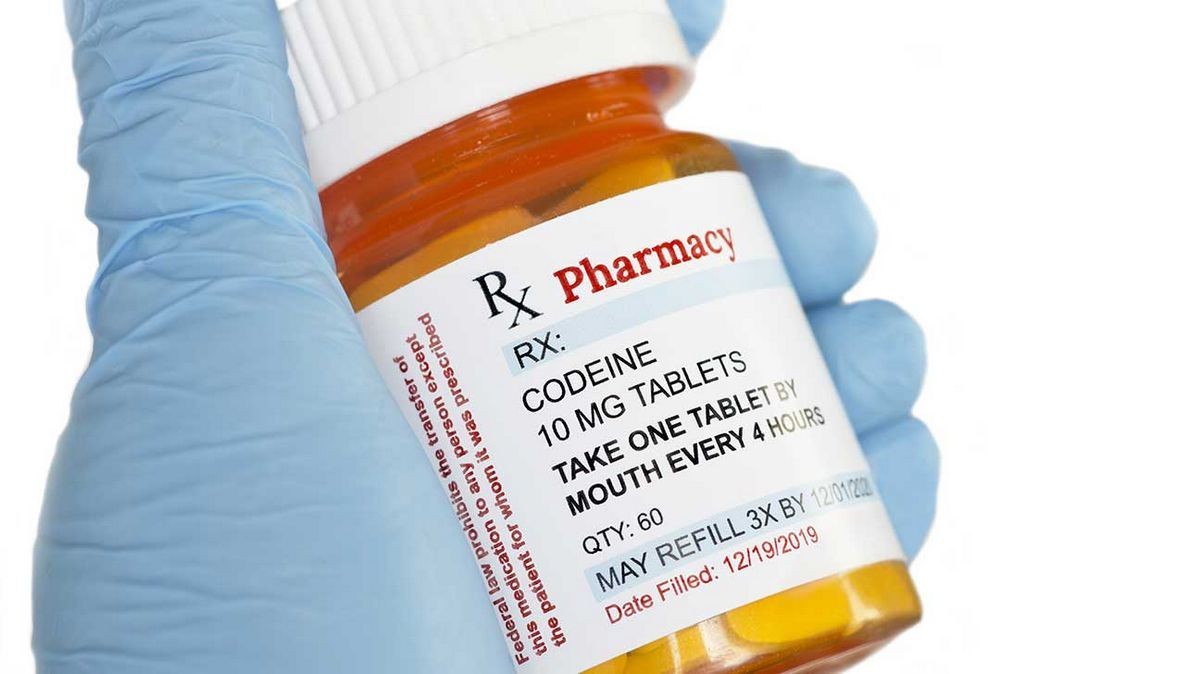
acetaminophen/codeine – oral, Tylenol-Codeine No.3, Tylenol-
Medication Uses How To Use Side Effects Precautions Drug Interactions Overdose Notes Missed Dose Storage USES: This medication is used to relieve mild to moderate pain. This product is a combination of acetaminophen and the narcotic drug codeine. Codeine acts on certain centers in the brain to reduce pain. OTHER This section contains uses of this drug that are not listed in the approved professional labeling for the drug but that may be prescribed by your health care professional. Use this drug for a condition that is listed in this section only if it has been so prescribed by your health care professional. This medication may also be used to suppress a cough. HOW TO USE: Take this medication by mouth, as directed by your doctor. You may take this drug with or without food. If you have nausea, you may take this drug with food, although doing so may decrease its effectiveness. Consult your doctor or pharmacist about alternatives for decreasing nausea (e.g., antihistamines, lying down for 1-2 hours with minimal head movement). If you are taking the suspension, shake the bottle well before each dose. If you are using a liquid form of this medication, use a medication measuring device to carefully measure the prescribed dose. Do not use a household spoon because you may not get the correct dose. The dosage is based on your medical condition and response to therapy. If you are extremely drowsy after using this medication, consult your doctor or pharmacist promptly. Your dosage may need to be lowered. Pain medications work best in relieving pain before it becomes severe. Once the pain becomes intense, the medication is not as effective in relieving it. Use this medication exactly as prescribed. Do not increase your dose, take it more frequently or use it for a longer period of time than prescribed because this drug can be habit-forming. Also, if used for an extended period of time, do not suddenly stop using this drug without your doctor’s approval. When used for an extended period, this medication may not work as well and may require different dosing. Talk with your doctor if this medication stops working well. Children – Your child’s dose of this medication is based on weight. This medication contains acetaminophen. Do not take more acetaminophen than recommended (see Side Effects section). SIDE EFFECTS: Nausea, vomiting, constipation, lightheadedness, dizziness, drowsiness, flushing, vision changes, or mental/mood changes may occur. If any of these effects persist or worsen, notify your doctor or pharmacist promptly. Remember that your doctor has prescribed this medication because he or she has judged that the benefit to you is greater than the risk of side effects. Many people using this medication do not have serious side effects. Tell your doctor immediately if any of these unlikely but serious side effects occur: slow/irregular breathing, slow/irregular heartbeat, change in the amount of urine. If you do not have liver problems, the adult maximum dose of acetaminophen is 4 grams (4000 milligrams). If you take more than the maximum daily amount, it may cause serious (possibly fatal) liver disease. Seek immediate medical attention if you have any of the following symptoms of liver damage: severe nausea, yellowing eyes or skin, dark urine, stomach pain, extreme fatigue. If you have liver problems, consult your doctor or pharmacist for a safe dosage of this medication. An allergic reaction to this drug is unlikely, but seek immediate medical attention if it occurs. Symptoms of an allergic reaction include: rash, itching/swelling (especially of the face/tongue/throat), severe dizziness, trouble breathing. This is not a complete list of possible side effects. If you notice other effects not listed above, contact your doctor or pharmacist. In the US – Call your doctor for medical advice about side effects. You may report side effects to FDA at 1-800-FDA-1088. In Canada – Call your doctor for medical advice about side effects. You may report side effects to Health Canada at 1-866-234-2345.
PRECAUTIONS: Before taking this product, tell your doctor or pharmacist if you are allergic to acetaminophen or codeine; or to other narcotic pain medications (e.g., morphine); or to sulfites (found in some brands); or if you have any other allergies. This medication should not be used if you have certain medical conditions. Before using this medicine, consult your doctor or pharmacist if you have: severe breathing problems (e.g., respiratory depression, hypercapnia), severe diarrhea (e.g., Clostridium difficile-associated diarrhea, infectious diarrhea due to toxins). Before using this medication, tell your doctor or pharmacist your medical history, especially of: liver disease, kidney disease, difficulty urinating (e.g., enlarged prostate, urethral stricture), alcohol use, drug dependency, heart problems (e.g., slow/irregular heartbeat, very low blood pressure), abdominal/stomach problems (e.g., gallbladder disease), lung disease (e.g., asthma, chronic obstructive pulmonary disease), seizure disorders, serious head injury or brain disease, spinal problems (kyphoscoliosis), low thyroid disease (hypothyroidism), adrenal gland problems (Addison’s disease), psychiatric problems (toxic psychosis). This drug may make you dizzy or drowsy. Do not drive, use machinery, or do any activity that requires alertness until you are sure you can perform such activities safely. Avoid alcoholic beverages. To minimize dizziness and lightheadedness, get up slowly when rising from a seated or lying position. Acetaminophen may cause liver damage. Daily use of alcohol, especially when combined with acetaminophen, may increase your risk for liver damage. Avoid alcohol. Check with your doctor or pharmacist for more information. Liquid products may contain sugar and alcohol. Caution is advised if you have diabetes, alcohol dependence, liver disease, or any other condition that requires you to limit/avoid these substances in your diet. Ask your doctor or pharmacist about using this product safely. Caution is advised when using this drug in the elderly because they may be more sensitive to the side effects of the drug, especially the possible decreased breathing and drowsiness effects. This medication should be used only when clearly needed during pregnancy. It is not recommended for use for long periods or in high doses near the expected delivery date because of the potential for harm to an unborn baby. Discuss the risks and benefits with your doctor. This product passes into breast milk and may rarely have undesirable effects on a nursing infant. Tell your doctor immediately if your infant develops increased sleepiness, difficulty feeding, or trouble breathing. Discuss the risks and benefits with your doctor before breastfeeding. DRUG INTERACTIONS: Your doctor or pharmacist may already be aware of any possible drug interactions and may be monitoring you for them. Do not start, stop, or change the dosage of any medicine before checking with them first. This drug should not be used with the following medication because very serious interactions may occur: naltrexone. If you are currently using this medication, tell your doctor or pharmacist before starting this drug. Before using this medication, tell your doctor or pharmacist of all prescription and nonprescription products you may use, especially of: other medications for pain, cimetidine, isoniazid, anti-seizure drugs (e.g., carbamazepine, phenobarbital, phenytoin), anticholinergic drugs/antihistamines (e.g., hydroxyzine, oxybutynin, scopolamine), quinidine. Also report drugs that cause drowsiness such as: medicine for sleep (e.g., sedatives), tranquilizers, anti-anxiety drugs (e.g., diazepam), psychiatric medicines (e.g., phenothiazines such as chlorpromazine, or tricyclics such as amitriptyline), muscle relaxants, antihistamines that cause drowsiness (e.g., diphenhydramine). Acetaminophen is an ingredient in many nonprescription products and in some combination prescription medications. Read the labels carefully before taking other pain relievers, fever reducers, or cold products to see if they also contain acetaminophen. Consult your pharmacist if you are uncertain if your other prescription or nonprescription products contain acetaminophen. (Also see adult maximum daily dose information in Side Effects section). This document does not contain all possible interactions. Therefore, before using this product, tell your doctor or pharmacist of all the products you use. Keep a list of all your medications with you, and share the list with your doctor and pharmacist.
QUESTION
OVERDOSE: If overdose is suspected, contact your local poison control center or emergency room immediately. US residents can call the US national poison hotline at 1-800-222-1222. Canadian residents should call their local poison control center directly. Symptoms of overdose may include: persistent nausea or vomiting, stomach pain, slow breathing, slow heartbeat, cold/clammy skin, unusual sweating, loss of consciousness, yellowing eyes or skin, dark urine, extreme fatigue. NOTES: Do not share this medication with others. It is against the law. This medication has been prescribed for your current condition only. Do not use it later for another condition unless told to do so by your doctor. A different medication may be necessary in those cases. To prevent constipation, maintain a diet adequate in fiber, drink plenty of water, and exercise. If you become constipated while using this drug, consult your pharmacist for help in selecting a laxative (e.g., stimulant-type). MISSED DOSE: If you miss a dose, use it as soon as you remember. If it is near the time of the next dose, skip the missed dose and resume your usual dosing schedule. Do not double the dose to catch up. STORAGE: Store at room temperature between 59 and 86 degrees F (15-30 degrees C) away from light and moisture. Do not store in the bathroom. Keep all medicines away from children and pets. Do not flush medications down the toilet or pour them into a drain unless instructed to do so. Properly discard this product when it is expired or no longer needed. Consult your pharmacist or local waste disposal company for more details about how to safely discard your product.
Report Problems to the Food and Drug Administration
You are encouraged to report negative side effects of prescription drugs to the FDA. Visit the FDA MedWatch website or call 1-800-FDA-1088.
Selected from data included with permission and copyrighted by First Databank, Inc. This copyrighted material has been downloaded from a licensed data provider and is not for distribution, except as may be authorized by the applicable terms of use.
CONDITIONS OF USE: The information in this database is intended to supplement, not substitute for, the expertise and judgment of healthcare professionals. The information is not intended to cover all possible uses, directions, precautions, drug interactions or adverse effects, nor should it be construed to indicate that use of particular drug is safe, appropriate or effective for you or anyone else. A healthcare professional should be consulted before taking any drug, changing any diet or commencing or discontinuing any course of treatment.
CONDITIONS OF USE: The information in this database is intended to supplement, not substitute for, the expertise and judgment of healthcare professionals. The information is not intended to cover all possible uses, directions, precautions, drug interactions or adverse effects, nor should it be construed to indicate that use of particular drug is safe, appropriate or effective for you or anyone else. A healthcare professional should be consulted before taking any drug, changing any diet or commencing or discontinuing any course of treatment.


